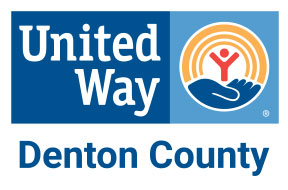As featured in the Denton Record-Chronicle on 10/30/2018 by Peggy Heinkel-Wolfe...
Denton has formally joined 750 cities nationwide, including 16 in Texas, in a 4-year-old campaign that aims to end homelessness for veterans.
Mayor Chris Watts stopped by an event organized for area veterans last week to publicly announce the city’s goal to end veteran homelessness locally by 2020.
“We’ve been operating on that kind of goal for a while,” Watts said. “Now we’ve signed on in an official way.”
The initiative began with the U.S. Department of Veterans Affairs and the U.S. Interagency Council on Homelessness in 2014. That year, thanks to the National League of Cities, Denton and the Denton Housing Authority were able to double the number of housing vouchers for local veterans to 20, Watts said.
Since then, the Denton County Veterans Center has launched, and the United Way also began its local initiative to address homelessness among veterans and others in Denton County.
Courtney Cross, the director of homelessness initiatives at the United Way of Denton County, said the goal to end veteran homelessness in Denton by 2020 is doable.
“We’ve laid a good foundation as a community to make this a realistic goal,” Cross said.
For example, the myriad nonprofit groups that provide services work together in a “coordinated entry” system that identifies those who are experiencing homelessness and matches them to appropriate services.
That coordinated entry system has identified 48 veterans among those experiencing homelessness in Denton County.
The special focus on helping veterans comes in part from resources available to them through the U.S. Department of Veterans Affairs, the U.S. Department of Housing and Urban Development, and others, Cross said. But lining up resources to help veterans — as one subset of those experiencing homelessness — lays the groundwork to help others, Cross said.
For example, mental, behavioral or financial issues can be barriers to permanent housing for veterans, just as they are for others, Cross said.
In the case of financial barriers, the United Way set up a “barriers fund,” similar to initiatives in Austin and Houston.
Considered a fund of last resort, the money can be used to pay an unexpected bill to prevent homelessness or fund a deposit or otherwise guarantee a lease for a tenant coming out of homelessness. To date, the fund has disbursed about $6,600 and helped 14 families.
The owner of rental property himself, Watts is continuing to challenge other property owners to keep an open mind when the phone rings and someone is calling to see if their unit is a good fit for their client.
That advice isn’t just for others, but something he’s been willing to do himself, Watts said.
“I’m trying my best to implement what I’m asking others to do,” he said.
